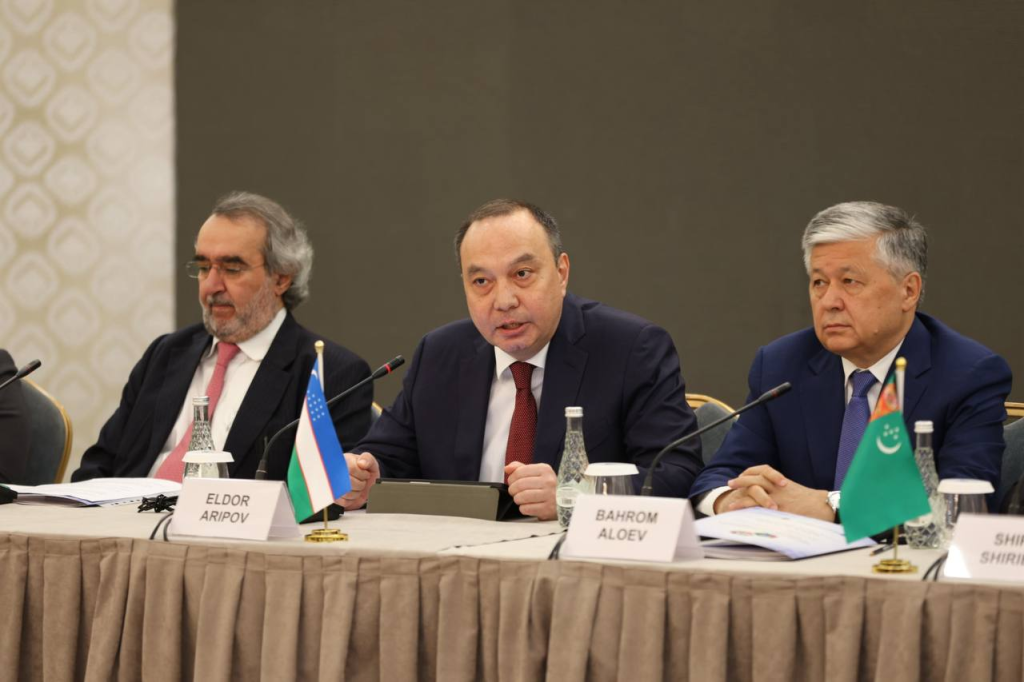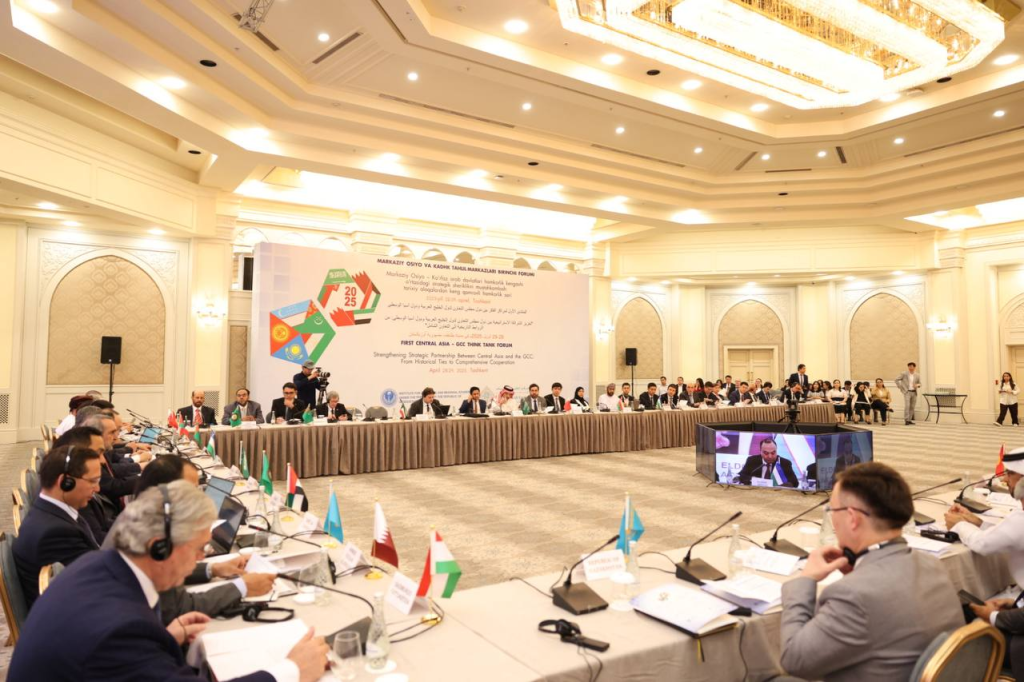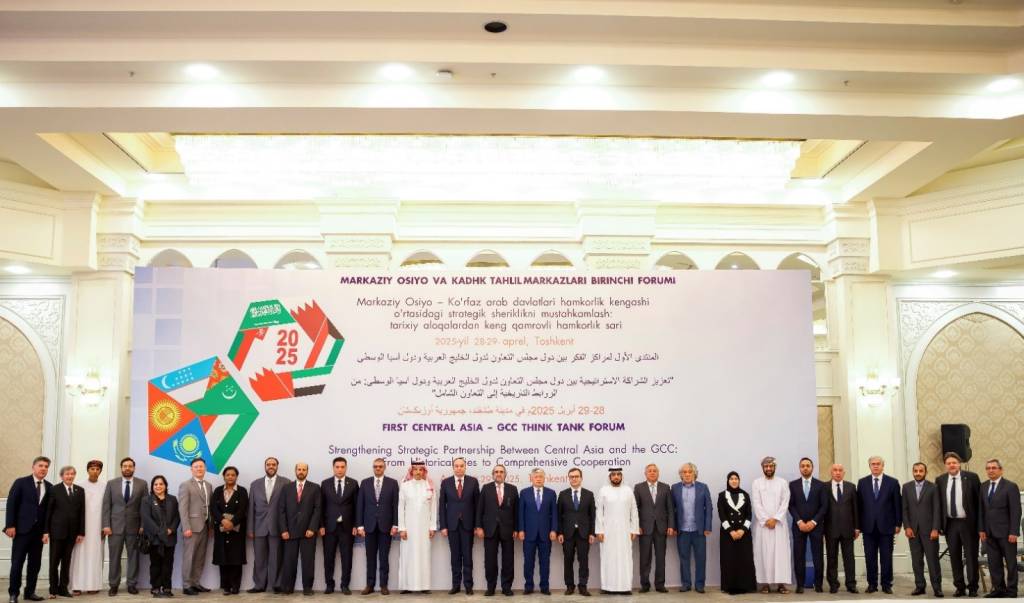
The First Central Asia – Gulf Cooperation Council (GCC) Think Tank Forum on “Strengthening Strategic Partnership: From Historical Ties to Comprehensive Cooperation” has started in Tashkent, Uzbekistan.
Delivering a welcoming speech at the event, Eldor Aripov, Director of the Institute for Strategic and Regional Studies under the President of the Republic of Uzbekistan (ISRS), emphasized the importance of the event. He noted that “the Tashkent forum will be a turning point in strengthening scientific and expert dialogue between regions, creating an effective platform for exchanging opinions and developing initiatives to fill the common cooperation agenda with new strategic content”.
As the head of the Institute stated, the regions are connected not only by a common past, but also by a similar vision of the future. The Great Silk Road, which for centuries connected markets, cultures, and ideas from Central Asia to the shores of the Arabian Peninsula, served as the basis for economic and civilizational connectivity. By reviving these historical ties, we are creating new bridges of cooperation in energy, logistics, scientific, technical, and investment spheres. The first Central Asia – GCC summit in Jeddah in July 2023 was the key step. This event became a new milestone in the development of interregional cooperation and created an institutional basis for regular political dialogue. Within its framework, meetings of foreign ministers and investment forums were organized, and a Joint Action Plan for 2023-2027 was adopted. This cooperation is already yielding tangible results. In particular, over the past three years, the volume of trade between Uzbekistan and the GCC countries has tripled (from $257 million to $812 million), and the number of joint ventures has reached about 400, showing a twofold increase.

Positive shifts are also taking place in tourist exchanges. By 2024, the flow of tourists from the Gulf countries to the country exceeded 12 thousand people, which is twice as much as in 2021.
Moving on to the prospects for developing the partnership, Eldor Aripov dwelt in detail on several key aspects that, in his opinion, will contribute to the qualitative deepening of cooperation in the coming years.
First, he pointed out, this is the absence of profound contradictions between the regions and their common focus on global stability and sustainable development. The countries of the two regions continue their course of mutual support within the framework of such influential international structures as the United Nations, the Organization of Islamic Cooperation, the Shanghai Cooperation Organization, and the Non-Aligned Movement.
Second, the expert believes, it is essential to jointly respond to new global challenges, such as the investment downturn, increased protectionism, trade wars, and instability in global supply chains. “Only by joining forces will we be able to develop effective and sustainable models for responding to the above challenges”, he specified.
Third, he said, both regions are going through a historically significant stage of rapid transformation. At the same time, not only modern economic processes, but also development strategies in the Gulf and Central Asian countries are surprisingly similar. Saudi Vision 2030, Qatar National Vision 2030, Oman Vision 2040 – these strategic documents have much in common with Kazakhstan-2050, Uzbekistan Vision-2030, the Development Strategy of Kyrgyzstan and Tajikistan until 2030, and other modernization programs in Central Asia.
Fourth, the expert pointed out that active regionalization processes are observed in both regions. If the Gulf countries have many years of experience in this, Central Asia has only just begun to build the foundations of cooperation and consolidation. In these conditions, the expert is convinced that support from the GCC for regional initiatives and projects in Central Asia aimed at the sustainable development of the region is of particular importance.
According to the ISRS representative, analytical centers should be essential in maintaining dialogue.
“I am convinced that our current and future joint work will give new impetus to information and analytical support for high-level meetings and strengthen the regional dialogue”, concluded Eldor Aripov.
The event, organized by ISRS and the Gulf Research Center, is attended by more than 70 authoritative experts from Central Asian and GCC countries and representatives of the GCC Secretariat, diplomatic corps, and business community.
The forum participants will discuss key aspects of current and future interaction between Central Asian and Gulf Arab states. The focus will be on strengthening political dialogue and coordinated approaches to ensuring regional security, deepening trade and investment ties, implementing promising projects in green energy, and developing transport corridors.

UzA








